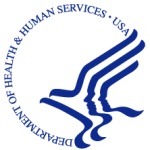- Industry: Government
- Number of terms: 33950
- Number of blossaries: 0
- Company Profile:
United States Department of Health and Human Services, Radiation Emergency Medical Management
A type of surgery to remove the breast. The breast is injected with a liquid mixture of salts and small amounts of two drugs. These drugs are lidocaine, to numb the area, and epinephrine, to narrow blood vessels and reduce bleeding. Tumescent mastectomy is usually used to treat breast cancer in elderly patients.
Industry:Health care
A clinical study that includes all eligible patients identified by the researchers during the study registration period. The patients are treated in the order in which they are identified. This type of study usually does not have a control group.
Industry:Health care
An herb native to China. A substance taken from the roots has been used in traditional Chinese medicine to treat menstrual and menopausal problems. Dong quai may increase the effect of the drug warfarin (a blood-thinner). The scientific name is Angelica sinensis.
Industry:Health care
An anticancer drug that increases the effectiveness of fluorouracil. Also called eniluracil.
Industry:Health care
The study of genes and heredity. Heredity is the passing of genetic information and traits (such as eye color and an increased chance of getting a certain disease) from parents to offspring.
Industry:Health care
An abnormal increase in the number of normal cells in an organ or tissue.
Industry:Health care
The colored tissue at the front of the eye that contains the pupil in the center. The iris helps control the size of the pupil to let more or less light into the eye.
Industry:Health care
A condition in which there is a lower-than-normal number of lymphocytes (a type of white blood cell) in the blood. Also called lymphocytopenia and lymphopenia.
Industry:Health care
A brain tumor that forms from more than one type of brain cell, usually astrocytes and oligodendrocytes.
Industry:Health care
